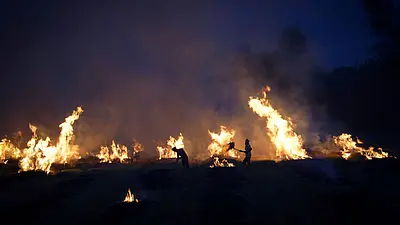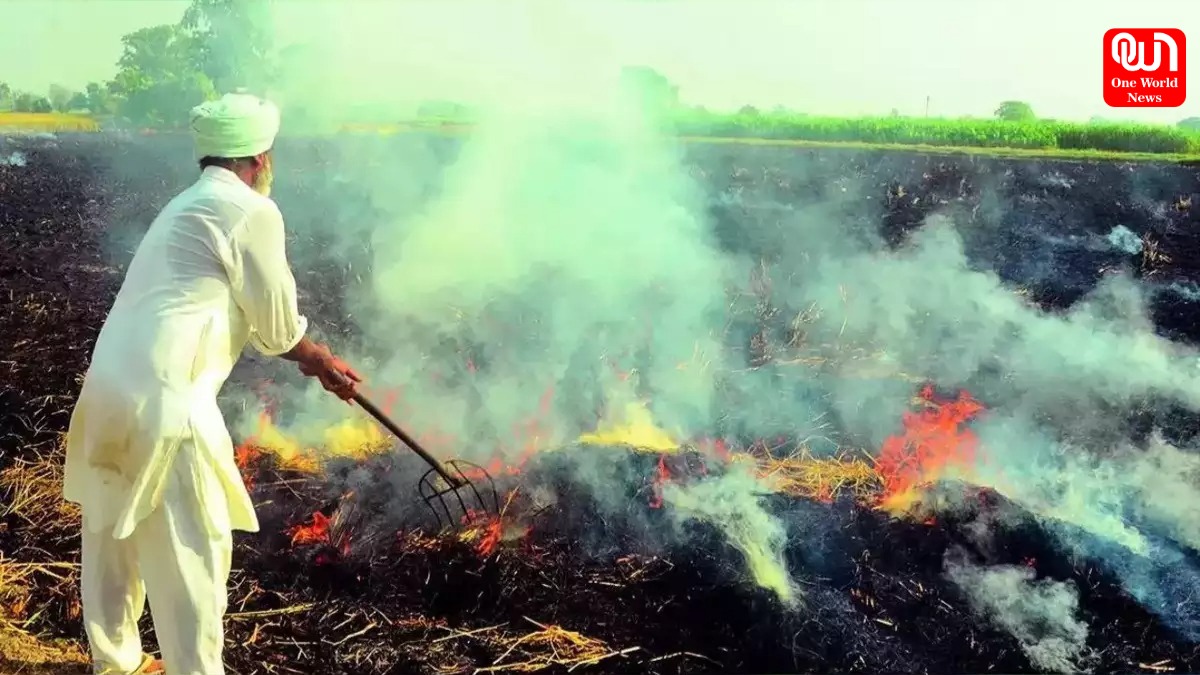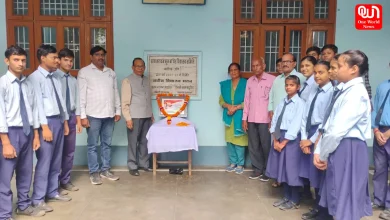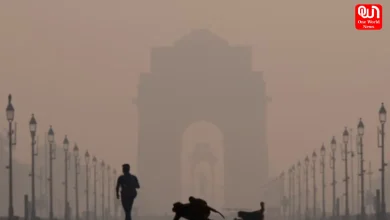Supreme Court Critiques Centre on Ineffective Stubble Burning Regulations
Supreme Court criticizes Centre for ineffective stubble burning regulations, emphasizing urgent need for enforcement and accountability.
Supreme Court Criticizes Central Government for Ineffective Stubble Burning Regulations and Calls for Immediate Enforcement and Accountability in Punjab and Haryana

Recently, India’s Supreme Court expressed displeasure with the Central government due to the inefficiency of regulations to check this current issue of burning stubble in North India. During a hearing on the petition, it referred to the Environment Protection Act as “toothless,” revealing the helplessness of existing measures and permitting this environmental crisis to be continued unbridled.
Read More: Urgent Action Needed as Air Pollution Worsens in Navi Mumbai, Thane, Badlapur, and Ulhasnagar
Blistering potshots by the bench of Justices Abhay S Oka, Ahsanuddin Amanullah, and Augustine George Masih on the state governments of Punjab and Haryana for doing nothing regarding pressing laws against stubble burning underlined the stark reality: if the states were serious about upholding environmental law, by now, there should have been serious prosecutions in large numbers.
Read more: PM Modi’s Thumbs Up at BRICS Summit Dinner with Putin and Xi: A Show of Unity After India-China Deal
The attention of the court was mainly at the Punjab government, which, according to the judges, has lodged only 1,080 FIRs against offenders. Even if that may be so, they noted that mere 473 fines have been levied that meant over 600 offenders have gone without punishment.
That is a hollow message sending the worrisome public: to continue to indulge in the act of stubble burning without fear of consequences. Justice Oka grilled the Punjab chief secretary on questionable statements to the advocate general regarding seeking Central government aid for the farmers. “You are in charge of government officials,” she pointed out.
Read more: Latest Update on Bengaluru building collapse Case !
The Supreme Court also examined an affidavit submitted by the Haryana chief secretary, who was present in court. While the chief secretary was actually reporting that 5,123 nodal officers had been appointed and a monitoring committee had been set up, he couldn’t help but cite an alarming figure: though there had been a drastic decrease in the number of instances of stubble burning, no less than 400 had taken place, for which only 32 FIRs had been filed.
The court pointed to this differential application of law, pointing out that what the chief secretary was reporting was not actually in consonance with facts presented before it, as the figures reported showed stark variations, too.
The high court made it clear that both the state officials must be careful with their words and strictly implement the stubble burning norms. This strict response of the court would, of course mean that without serious action and accountability from both Centre and state governments, this issue of stubble burning, accompanied by the further deterioration of air quality in Delhi and its belts, would remain here for a pretty long time.
The Supreme Court intervention underscores the need to develop meaningful environmental legislation and act against it to ensure health for all.
We’re now on WhatsApp. Click to join.
Like this post?
Register at One World News to never miss out on videos, celeb interviews, and best reads.








